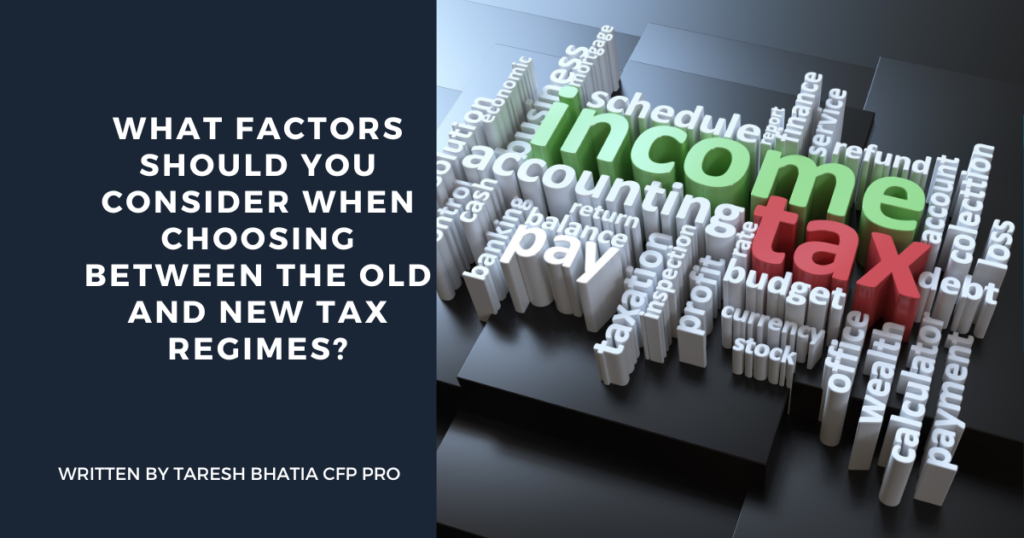Introduction
Navigating the Indian tax system can be complex, especially if you’re aiming to minimize your tax liability on a salary of Rs. 15 Lakhs in 2024. With recent updates in the tax regime introduced by the Union Budget 2024, there are new opportunities for salaried individuals to significantly reduce, or even eliminate, their tax burden through strategic planning. This guide will walk you through every step of the process, covering everything from the basics of tax slabs and exemptions to the latest changes in the new tax regime. Whether you are a salaried employee, a financial-planner-gurgaon/" target="_blank" rel="nofollow">financial planner, or someone interested in maximizing savings, this article is for you.
Understanding the Indian Tax System: An Overview

India’s tax system is structured around a progressive tax regime, where different income slabs are taxed at varying rates. As of 2024, there are two primary regimes available to taxpayers: the old regime, which offers a plethora of exemptions and deductions, and the new regime, which simplifies the process by offering lower tax rates but with fewer deductions.
New Income Tax Slabs for FY 2024-25:
- Income up to Rs. 3 Lakhs: Nil
- Income from Rs. 3 Lakhs to Rs. 7 Lakhs: 5%
- Income from Rs. 7 Lakhs to Rs. 10 Lakhs: 10%
- Income from Rs. 10 Lakhs to Rs. 12 Lakhs: 15%
- Income from Rs. 12 Lakhs to Rs. 15 Lakhs: 20%
- Income above Rs. 15 Lakhs: 30%
Understanding these slabs is crucial because the choice between the old and new regimes can significantly impact your tax liability. For those earning a salary of Rs. 20 Lakhs, strategic planning can help you maximize exemptions and minimize your taxable income under the old regime, or take advantage of lower rates under the new regime.
Can You Pay Zero Tax on a Rs. 15 Lakh Salary?
One of the most pressing questions for many salaried individuals is whether it’s possible to bring down your tax liability to zero if you earn up to Rs. 15 Lakhs. The answer is yes, with careful planning. The old tax regime, in particular, offers various deductions and exemptions that can help you reduce your taxable income to the point where you may owe little to no tax.
Key Exemptions and Deductions to Consider:
- Section 80C: Deductions up to Rs. 1.5 Lakhs on investments like EPF, PPF, ELSS, and NSC.
- Section 80D: Deductions on health insurance premiums for self, spouse, children, and parents.
- House Rent Allowance (HRA): Exemption on rent paid, subject to certain conditions.
- Standard Deduction: A flat deduction, which has been increased to Rs. 75,000 in 2024.
By utilizing these deductions strategically, you can lower your taxable income significantly, potentially to a level where no tax is owed.
Using the Tax Calculator for Planning

Before diving deeper into the specific strategies, it’s advisable to use a tax calculator to get a clear understanding of your current tax situation. A tax calculator allows you to input your income details, exemptions, and deductions to see exactly where you stand under both the old and new tax regimes.
Why Use a Tax Calculator?:
- Accuracy: Provides a precise calculation of your tax liability.
- Comparison: Allows you to compare the benefits of the old and new regimes.
- Planning: Helps in structuring your salary components and investments for maximum tax savings.
For your convenience, I’ve created a comprehensive tax calculator that you can download and use. The link is provided below.
Old vs. New Tax Regime: Which is Better?

One of the key decisions you need to make for the financial year 2024-25 is whether to opt for the old tax regime or the new one. Each regime has its pros and cons, and the right choice depends on your financial situation, including your income, deductions, and investments.
Old Tax Regime:
- Pros: Allows for multiple exemptions and deductions.
- Cons: Higher tax rates, more complex calculations.
New Tax Regime:
- Pros: Lower tax rates, simpler structure.
- Cons: Fewer exemptions and deductions available.
Case Study: For someone earning a salary of Rs. 20 Lakhs, let’s consider the following scenario:
- Old Regime: With full utilization of Section 80C, 80D, HRA, and other exemptions, the taxable income could be reduced significantly.
- New Regime: While simpler, this regime might result in higher tax liability due to the absence of many exemptions.
Maximizing Tax Deductions: The Key to Savings
The cornerstone of tax planning is maximizing the available deductions to reduce your taxable income. Here are some strategies to consider:
Section 80C:
- Investments: Consider investing in PPF, EPF, ELSS, or NSC to avail of the Rs. 1.5 Lakhs deduction.
- Insurance: Premiums for life insurance policies also qualify under Section 80C.
Section 80D:
- Health Insurance: Deduct up to Rs. 25,000 for health insurance premiums paid for self, spouse, and children. An additional Rs. 50,000 can be claimed for premiums paid for parents.
Home Loan Interest (Section 24):

- Deduction: Deduct up to Rs. 2 Lakhs on the interest paid on home loans for self-occupied properties.
Restructuring Your Salary for Tax Efficiency
One of the most effective ways to minimize tax liability is by restructuring your salary. Here’s how you can do it:
Components to Include:
- House Rent Allowance (HRA): Ensure that HRA is a part of your salary structure if you are living in a rented accommodation.
- Leave Travel Allowance (LTA): This can be claimed for travel expenses incurred for vacations within India.
- Reimbursements: Consider including reimbursements for mobile, internet, and other expenses as part of your salary.
Example: Let’s assume a CTC of Rs. 16 Lakhs:
- Basic Salary: Rs. 8 Lakhs
- HRA: Rs. 3 Lakhs (actual rent paid: Rs. 2.5 Lakhs)
- LTA: Rs. 1 Lakh
- Reimbursements: Rs. 1 Lakh
By structuring your salary to maximize these components, your taxable income could be significantly reduced.
Example: Tax Calculation for Rs. 16 Lakh Salary
Let’s consider a detailed example of how tax planning can bring down the tax liability for a Rs. 16 Lakhs salary:
Salary Breakdown:
- Basic Salary: Rs. 8 Lakhs
- HRA: Rs. 3 Lakhs
- Standard Deduction: Rs. 75,000
- Section 80C Investments: Rs. 1.5 Lakhs
- Health Insurance Premium (Section 80D): Rs. 25,000
- Home Loan Interest (Section 24): Rs. 2 Lakhs
Total Deductions: Rs. 7.25 Lakhs
Taxable Income: Rs. 8.75 Lakhs
Under the new tax regime, the tax liability would be calculated as per the revised slabs. However, under the old regime, further deductions could reduce the liability even more.
Latest Budget Announcements Relevant to the New Tax Regime

The Union Budget 2024 introduced several key changes to the new tax regime that are worth noting:
- Revised Tax Slabs:
- The tax slabs have been adjusted to provide more favorable rates for certain income brackets. For instance, income between Rs. 3 Lakhs and Rs. 7 Lakhs is now taxed at 5%, while income between Rs. 7 Lakhs and Rs. 10 Lakhs is taxed at 10%.
- Increased Standard Deduction:
- The standard deduction has been increased from Rs. 50,000 to Rs. 75,000 under the new tax regime, which can save taxpayers up to Rs. 17,500 annually.
- Enhanced Family Pension Deduction:
- The deduction for#### Latest Budget Announcements Relevant to the New Tax Regime (Continued)
- Enhanced Family Pension Deduction:
- The deduction for family pensions has been increased from Rs. 15,000 to Rs. 25,000 under the new tax regime. This change is beneficial for pensioners and those receiving family pensions, providing them with additional tax relief【24†source】【25†source】.
- Simplification of Capital Gains Tax:
- The Budget 2024 also brought significant changes to the capital gains tax structure. The short-term capital gains (STCG) tax on specific financial assets has been increased from 15% to 20%. On the other hand, the exemption limit for long-term capital gains (LTCG) has been raised from Rs. 1 Lakh to Rs. 1.25 Lakhs. This move is designed to encourage long-term investments and reduce short-term trading, which is often more speculative【17†source】【24†source】.
- Other Notable Changes:
- The TDS (Tax Deducted at Source) rate on e-commerce transactions has been reduced from 1% to 0.1%, which will benefit small sellers on e-commerce platforms【24†source】.
- The Union Budget 2024 also introduced higher taxes on speculative trading by increasing the Securities Transaction Tax (STT) on trading in futures and options【17†source】.
These updates indicate that the government is focused on making the new tax regime more appealing, especially for middle-income earners. As you plan your taxes for 2024, it is essential to consider these changes to decide whether the new or old tax regime better suits your financial situation.
Final Thoughts & Key Takeaways
Tax planning is an essential aspect of managing your finances, particularly in a complex tax environment like India’s. The Union Budget 2024 has introduced several changes that could influence your decision on whether to opt for the old or new tax regime. Here’s a quick recap:
- Understanding Your Tax Slabs: Knowing your tax slab under the new regime is crucial for effective tax planning.
- Maximizing Deductions: Use Sections 80C, 80D, and 24 strategically to reduce your taxable income.
- Choosing the Right Regime: Consider your income, potential deductions, and the latest budget changes to decide between the old and new tax regimes.
- Latest Budget Changes: Be aware of the new tax slabs, increased standard deduction, and other budget announcements that could affect your tax planning strategy.
Remember, while the new tax regime offers lower rates and a simplified structure, the old regime still provides numerous deductions that could be more beneficial depending on your financial situation. If you need personalized advice, consider consulting with a financial planner to tailor a tax strategy that aligns with your goals.
Call to Action: If you found this article helpful, share it with your friends and colleagues who might benefit from this information. For more in-depth financial advice and tips, subscribe to my blog and follow me on social media.
The author of this article, Taresh Bhatia, is a Certified Financial Planner® and advocate for female empowerment. For more information and personalized financial guidance, please contact taresh@tareshbhatia.com
He has authored an Amazon best seller-“The Richness Principles”. He is the Coach and founder of The Richness Academy, an online coaching courses forum. This article serves educational purposes only and does not constitute financial advice. Consultation with a qualified financial professional is recommended before making any investment decisions. An educational purpose article only and not any advice whatsoever.
©️2025: All Rights Reserved. Taresh Bhatia. Certified Financial Planner®
Subscribe Now for Upcoming Blogs!
[convertkit form=6555951]
📢 Join free live webinar —
Couple Finance Formula™ Register here




